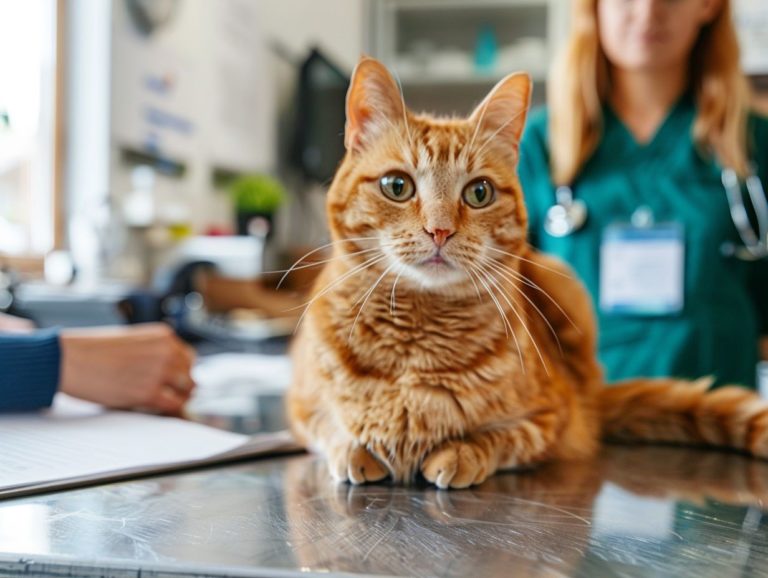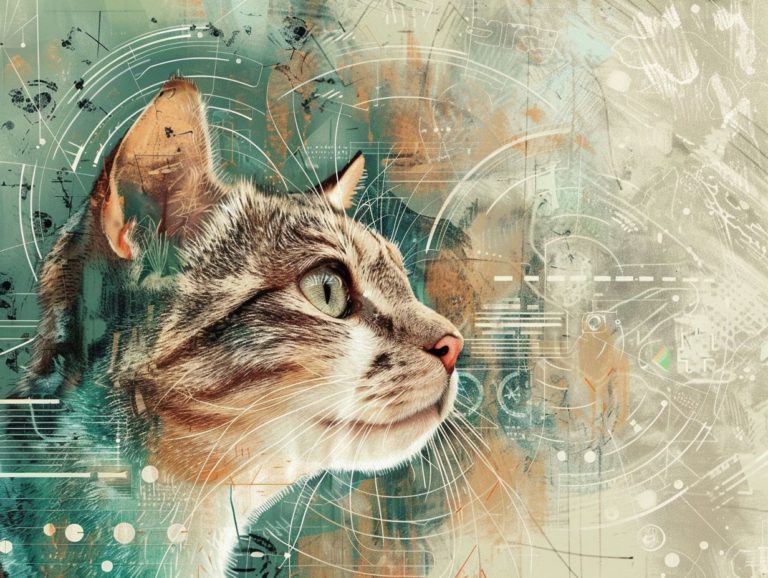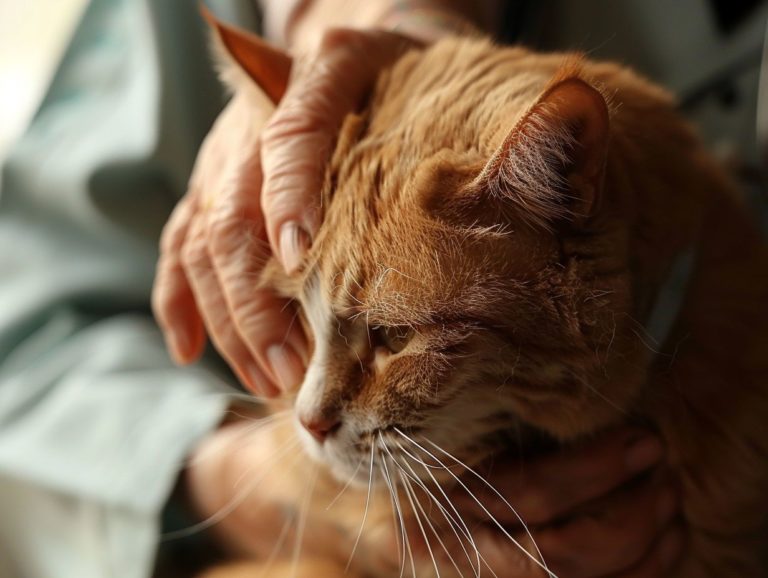Top 10 Benefits Of Insurance For Aging Cats
The importance of cat insurance for aging cats lies in the increasing significance of their health and well-being as our feline companions grow older. Insurance for older cats is crucial for various reasons. The top 10 benefits of insurance for aging cats include:
- Reduced financial costs of medical care
- Coverage for unexpected expenses
- Coverage for expensive treatments like chemotherapy and surgery
- Access to higher quality care and treatment
- Regular check-ups and early detection of health issues in aging cats
- Coverage for alternative and holistic treatments such as acupuncture, physiotherapy, and hydrotherapy
- Coverage for pre-existing conditions (available in some insurance plans)
- Coverage for euthanasia and cremation
- A comprehensive and customizable insurance plan for cats with multiple health conditions
Additionally, understanding how to choose the right insurance for your aging cat and how to effectively manage coverage and claims to maximize benefits and savings are essential. Recognizing why insurance is necessary for senior cats is also important.
Key Takeaways:
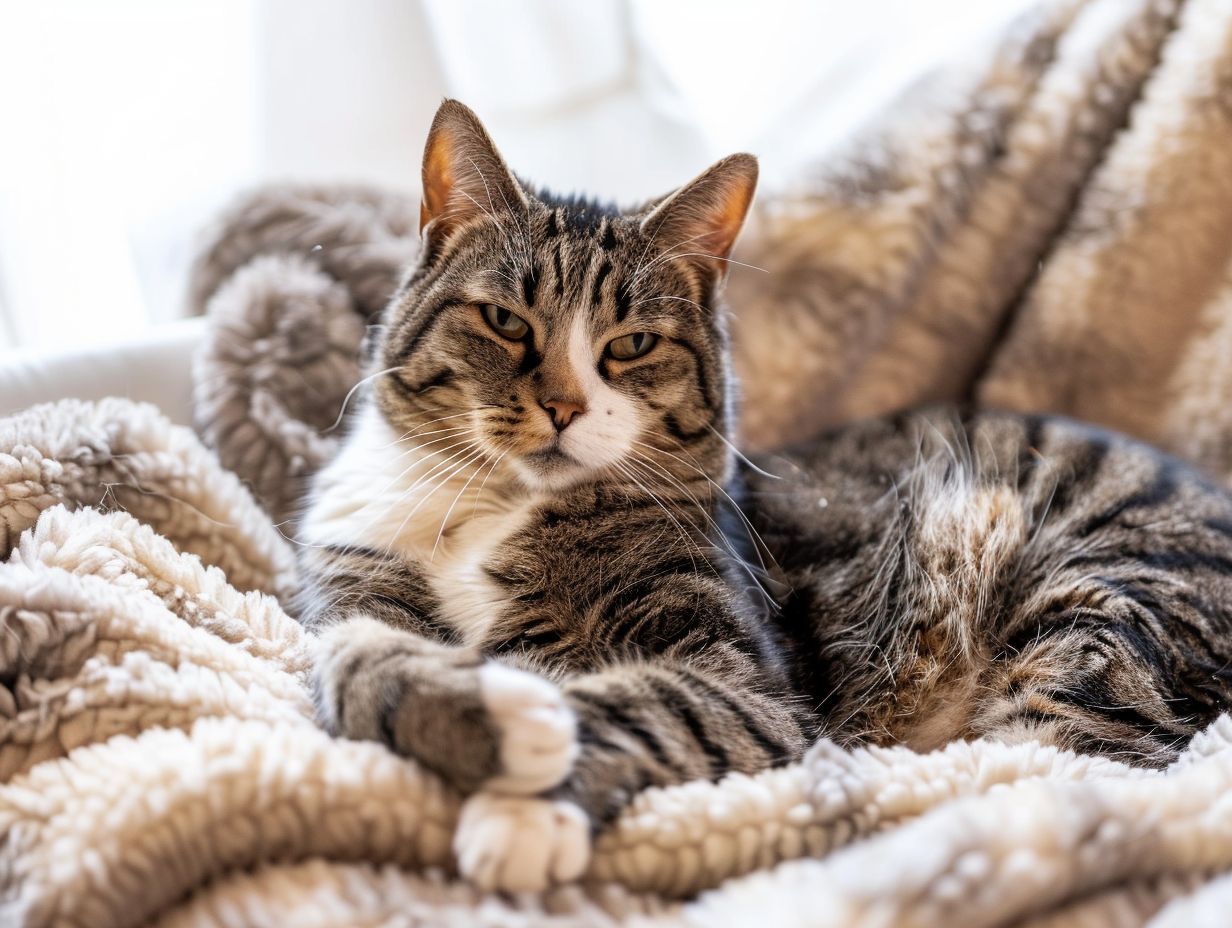
The Importance of Insurance for Aging Cats
Having insurance for aging cats is important to ensure they receive the necessary health coverage and care as they grow older. Older cats commonly develop age-related conditions such as arthritis, kidney disease, and dental issues, which may necessitate costly treatments. A comprehensive insurance policy allows pet owners to afford the appropriate medical care for their senior feline companions.
Regular check-ups and preventive care play a vital role in preserving the health and well-being of senior cats, and having insurance to assist with these veterinary expenses is essential.
Why Insurance is Necessary for Senior Cats
Senior cats require pet insurance as they are more susceptible to age-related health problems. With age, cats experience a weakening of their immune systems, making them prone to a variety of health issues. Arthritis can lead to joint pain and reduced mobility in senior cats, highlighting the importance of providing them with proper medical care. Dental disease is a prevalent concern among older cats, and if left untreated, it can result in oral pain and tooth loss. Heart and kidney diseases are common in senior cats, often requiring ongoing monitoring and treatment. Hyperthyroidism and cancer are additional issues that may necessitate costly interventions if not covered by insurance, emphasizing the financial benefits of having a policy for your aging feline companion.
Financial Benefits of Insurance for Aging Cats
Having insurance for an older cat can offer financial relief for senior cat care. By investing in insurance for your aging feline companion, you can take advantage of lower insurance premium rates, tailored coverage options designed specifically for older cats, and flexible enrollment features that allow you to effectively protect your pet when needed.
Cat insurance not only helps manage medical costs for elderly cats but also provides peace of mind knowing that your cat’s healthcare needs are covered. A comprehensive insurance plan can lower expenses associated with treatments, procedures, and medications for your senior cat.
Some insurance providers may even offer multipet discounts, making it a cost-efficient option for insuring multiple senior cats. When selecting cat insurance for an older cat, it is important to carefully review coverage restrictions and age limits to ensure your cat can fully benefit from the policy.
Reduced Costs of Medical Care
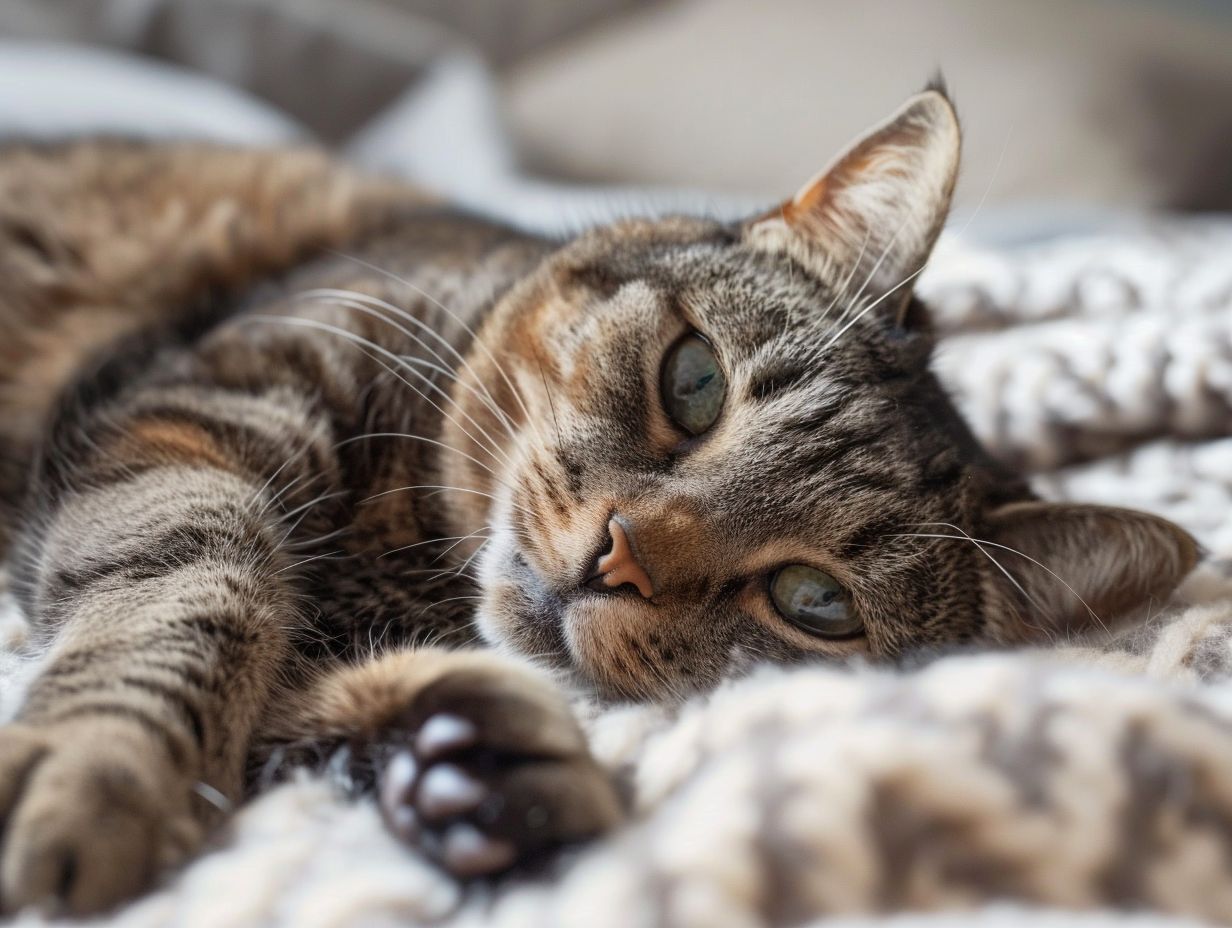
Having insurance for your senior cat offers the clear benefit of reducing the cost of medical care. With insurance that covers age-related conditions in cats, regardless of pre-existing conditions, you can alleviate the financial burden of expensive veterinary care and ensure your pet receives necessary treatment free of charge.
As cats age, they are more susceptible to developing conditions such as arthritis, diabetes, or kidney disease, which often necessitate frequent vet visits and ongoing care. By having insurance for your senior cat, you can rest assured that the expenses associated with managing these conditions will be taken care of.
Senior pets often come with pre-existing health conditions that require ongoing medication or treatment, which can be covered by insurance plans that include pre-existing conditions. It is important to note that some insurance companies impose maximum age limits for enrolling pets, potentially excluding coverage for older animals. Therefore, it is advisable to insure your pet early and choose an insurance policy that covers pre-existing conditions.
Coverage for Unexpected Expenses
Insurance for aging cats covers the cost of unexpected expenses related to their health conditions. Choosing a comprehensive insurance policy with the right coverage options and keeping the maximum age limit in mind ensures that you can protect your cat against unforeseen medical emergencies. This kind of insurance is especially important as cats get older and develop more health issues.
Without insurance, pet owners can face financial hardship due to expensive veterinary bills. When selecting a policy, it is crucial to ensure that the coverage options align with your specific cat’s needs. Understanding the maximum age limit in the policy will help guarantee your cat’s full protection throughout their later years, allowing you to provide them with the necessary healthcare without concerns about the cost.
Health Benefits of Insurance for Aging Cats
Cat insurance for older cats offers multiple health benefits by ensuring timely medical care and treatment. Tailored policies for seniors, coverage for age-related health conditions, and access to wellness plans for routine care all enhance the quality of healthcare for aging cats.
Insurance for aging cats alleviates the financial burden on pet owners from unexpected illnesses, injuries, or other health-related issues. Many cat insurance providers offer policies that encompass chronic conditions, diagnostics, and specialized treatments tailored to older cat insurance.
By investing in cat insurance for their senior cats, pet owners can rest assured that their cats will receive the necessary medical services without concerns about high costs. Wellness plans included in some policies provide benefits for preventive care, such as vaccines, dental cleanings, and annual check-ups, which can promote the overall health of aging cats.
Access to Quality Care
Insurance for aging cats provides access to quality care, including diagnostic testing for chronic conditions and end-of-life services. Pet wellness plans offered by insurance companies support preventive healthcare and overall health in senior cats.
Regular diagnostic testing for chronic conditions such as kidney disease, diabetes, and hyperthyroidism helps in early detection, allowing for timely intervention and management. End-of-life services included in insurance policies offer comfort and support during challenging times, ensuring that senior cats receive compassionate care throughout their final stages.
Pet wellness plans offered through insurance bundles aim to promote preventive care, routine check-ups, and vaccinations, supporting the health and longevity of elderly cats.
Early Detection of Health Issues
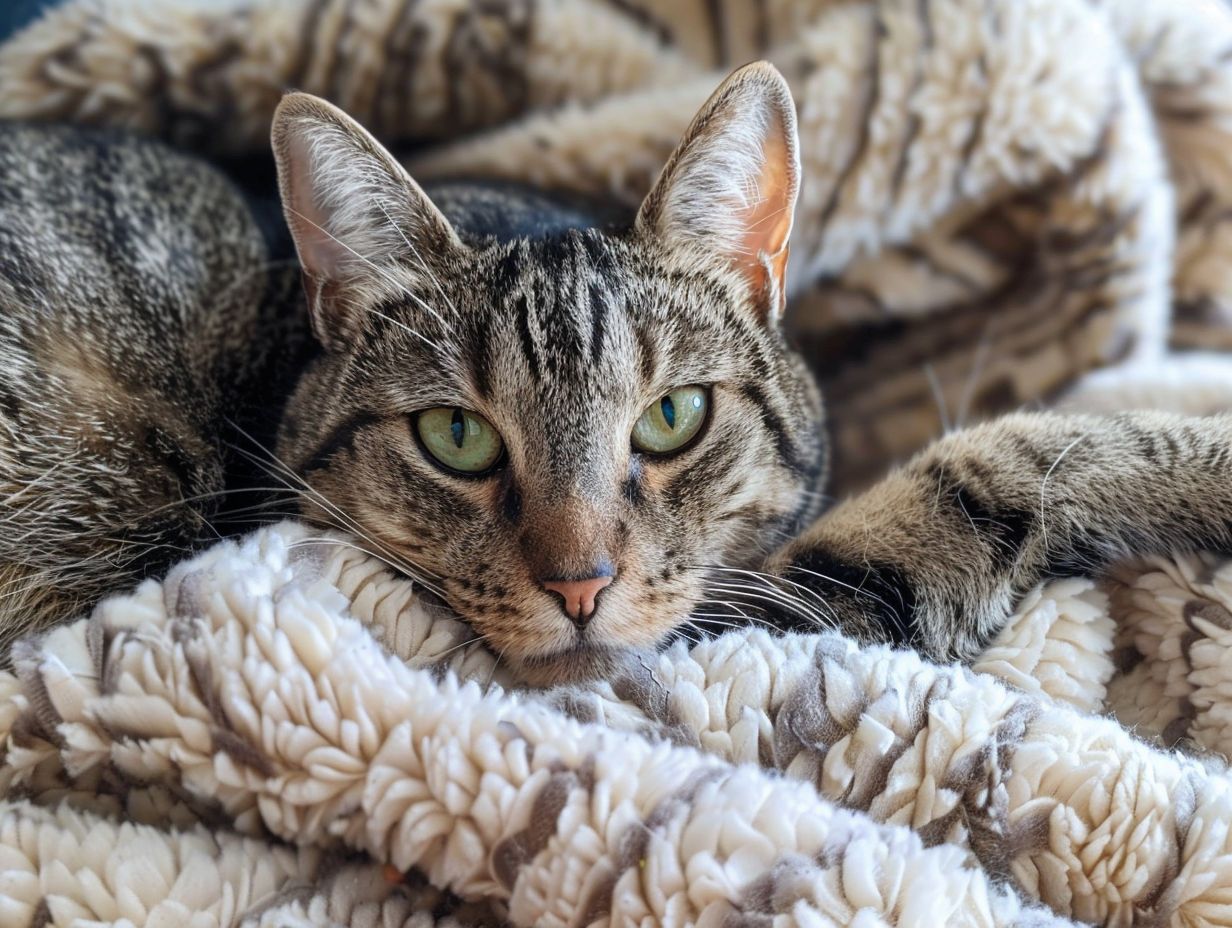
Having insurance for aging cats enables early detection of potential issues through regular veterinary care, monitoring food and exercise, and addressing dental health. Regular preventive care can also identify and manage breed-specific conditions and other issues promptly, ensuring the ongoing well-being of your aging cat.
By insuring your aging feline companion, you are not only safeguarding their physical health but also providing yourself with peace of mind. Routine check-ups and screenings are essential in catching any potential health concerns before they worsen. Monitoring their diet and activity levels can help prevent obesity and associated problems.
Maintaining good dental health for your cat is crucial in preventing infections and oral issues. Recognizing and managing breed-specific conditions can significantly enhance your cat’s quality of life as they grow older.
Choosing the Right Insurance for Your Aging Cat
When selecting the right insurance for your aging cat, factors to consider include the insurance provider, coverage plan, insurance policy specifics, available coverage options, age limit considerations, and the enrollment process. Choosing the appropriate insurance is essential to properly care for your cat’s health and well-being.
When choosing an insurance provider, it is important to ensure they have a good reputation and positive customer reviews.
Determining which coverage plan to choose can be influenced by how well you can tailor the insurance plan to your cat’s needs, whether that be for preventative care, dental care, or chronic condition coverage.
Understanding the insurance policy specifics is crucial to know exactly how much money will be reimbursed to you for claims after you’ve paid the deductible. This includes a clear understanding of the deductible amount, the reimbursement percentage, and any exclusions to the policy.
Considering available coverage options is important as you need to choose between accident-only, illness-only, or comprehensive coverage for your aging cat based on their current health status and other existing insurances.
Taking the age limit relevance into account in the insurance policy will help you determine the level of coverage based on your cat’s age and health risks.
The enrollment process for the right insurance for your aging cat is important to ensure you know how to enroll your cat when the time comes for them to receive proper coverage, whether it be in person, over the phone, online, or through an insurance agent.
Factors to Consider
When selecting the optimal insurance for senior cats, it is essential to consider coverage for specific conditions, premium rates, the reputation of the insurance provider, coverage restrictions, and the financial protection offered. These are key factors to assess when deciding on insurance for aging felines.
Coverage for Specific Health Conditions: The most critical aspect of insurance for senior cats is the coverage for common and specific health conditions such as arthritis, diabetes, and kidney disease. Sufficient coverage for these prevalent and likely conditions will ensure adequate coverage for your cat’s medical expenses.
Premium Rates: Premium rates for pet insurance for senior cats will vary among different insurance companies providing the same coverage. It is crucial to compare premium rates to ensure you receive the best possible coverage at the most affordable rate.
Reputation of the Insurance Provider: The reputation and track record of the insurance provider are additional crucial factors to consider when selecting the best insurance for senior cats. Reviews and feedback from other cat owners can provide insight into the claims procedure, customer service efficiency, and other aspects.
Coverage Restrictions: It is important to be aware of any coverage restrictions or limitations, such as pre-existing conditions that may not be covered, waiting periods, or annual maximum payouts.
Financial Safeguards: Examine the financial safeguards included in the insurance policy, such as deductible amounts, annual limits, and reimbursement percentages. Adjust these as needed to protect against unexpected expenses.
Types of Coverage Available
Insurance for aging cats offers various types of coverage, each with different maximum age limits, enrollment processes, and policy variations. Understanding these coverage options helps owners select the most suitable insurance plans for their aging cats.
As cats age, their healthcare requirements evolve, necessitating insurance that caters to the specific needs of aging felines. Some insurance plans impose maximum age limits for enrollment, a factor owners should consider. Enrollment procedures for cat insurance can vary by provider, with some requiring medical history documentation and others providing immediate coverage.
Policy flexibility is crucial, allowing customization of coverage to address the individual health needs of each cat.
Tips for Managing Insurance for Aging Cats
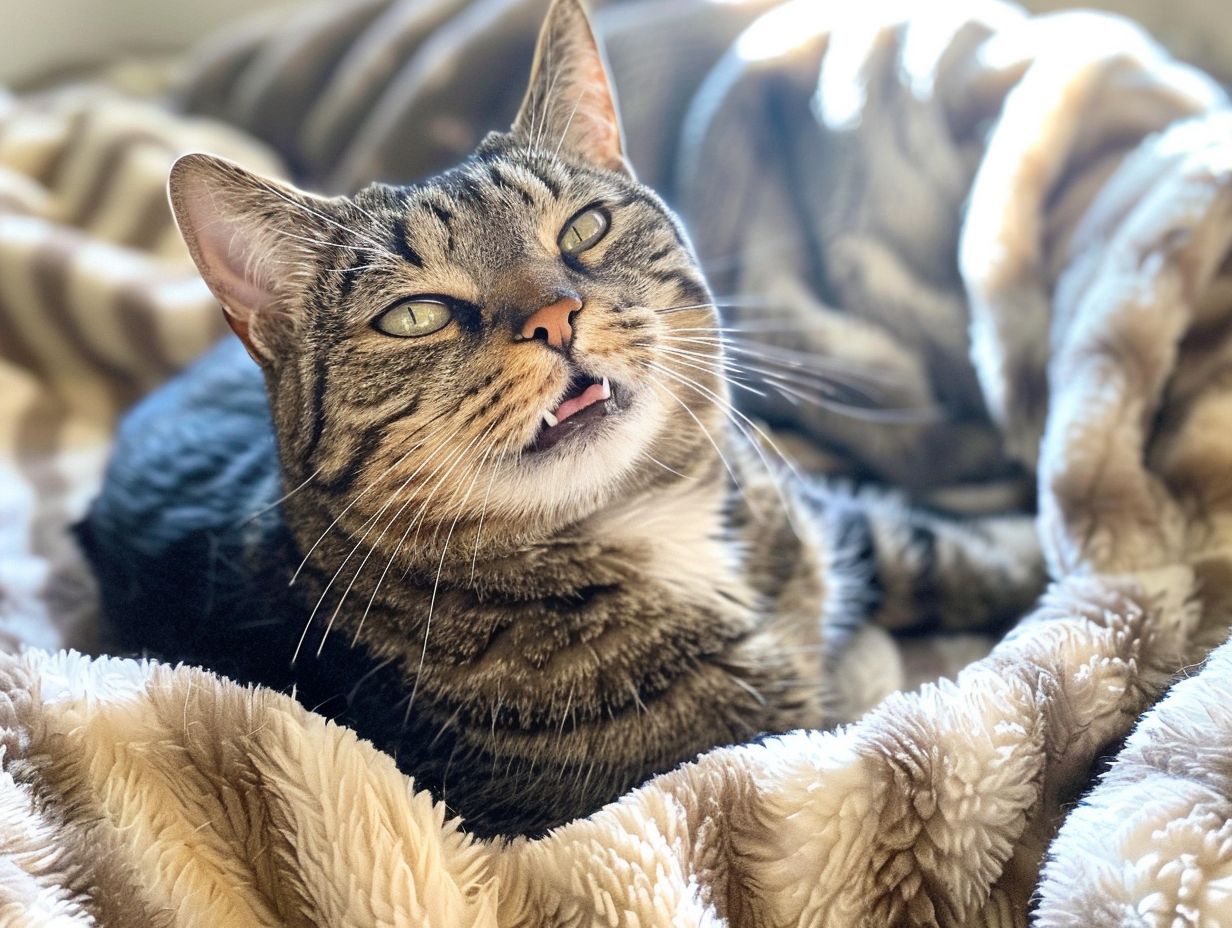
To effectively manage insurance for aging cats, key tips include:
- Understanding coverage changes
- Familiarizing oneself with claim processes
- Maximizing benefits for medical treatment
- Researching specific health conditions
These tips enable pet owners to be informed and proactive in collaborating with their insurance providers to secure optimal coverage and benefits for their senior cat’s veterinary care. Regularly reviewing the insurance policy will ensure pet owners stay informed about any changes or limitations that could affect their cat’s care. Keeping a record of veterinary visits, treatments, and medications can streamline the claims submission process, and having the necessary documentation and receipts ready when filing claims can expedite the reimbursement process. Researching common health conditions in older cats, such as arthritis or kidney disease, can help understand how insurance coverage can assist in covering treatment and management strategies for those conditions.
Understanding Coverage and Claims
To effectively manage insurance for old cats, specific factors need to be considered, including understanding the particulars of your insurance policy, the types of coverage available, the insurer’s policy on pre-existing conditions, and the types of care covered. Understanding these factors is essential for maximizing the healthcare coverage of your cat under the insurance policy.
Understanding Your Insurance Policy: This enables you to grasp the different categories of care covered, such as routine care, preventive care, emergency care, and ongoing care for chronic conditions. Knowing what is covered is crucial for making informed decisions about your cat’s care to ensure the best treatment without insurance costs posing a barrier.
Scope of Care Included in Insurance Plan: Understanding the extent of care included in your insurance plan allows for well-informed decisions regarding your cat’s health and medical needs, without the cost of coverage being a limiting factor.
Policy on Pre-Existing Conditions: Knowing your insurance provider’s policy regarding pre-existing conditions is vital to avoid unexpected difficulties or surprises when making claims related to treatments for these pre-existing conditions.
Maximizing Benefits and Savings
To maximize the benefits and potential savings of insurance for aging cats, pet owners can explore wellness plans, prioritize routine care, and manage the cost burden associated with veterinary expenses. These strategies utilize available resources and preventive methods to enhance health coverage and reduce overall healthcare costs for insured cats.
Plus choosing a comprehensive insurance plan tailored to the specific needs of an aging cat, preventive measures such as routine vaccinations, dental checks, and regular vet visits play a crucial role in maintaining the long-term health of insured cats. Detecting potential issues early can lead to cost savings in the long term.
Pet owners should inquire about discounts for multi-pet policies, loyalty programs, and regular annual policy reviews to ensure they are maximizing the value of their insurance coverage. By implementing these methods, pet owners can provide essential care for their beloved feline companions without facing excessive financial burdens.
Frequently Asked Questions
What are the top 10 benefits of insurance for aging cats?
1. Coverage for unexpected medical expenses: As cats age, they are more susceptible to health issues and insurance can help cover the cost of unexpected medical treatments.
2. Financial security: Insurance can provide peace of mind and financial security, knowing that your aging cat’s health needs will be taken care of.
3. Preventive care: Many insurance plans offer coverage for routine check-ups and preventive care, helping to keep your senior cat healthy.
4. Continued access to quality healthcare: As your cat ages, it may require more specialized care, and insurance can help cover the costs of seeing a specialist.
5. Assistance with chronic conditions: Insurance can help cover the ongoing costs of managing chronic conditions that are common in aging cats, such as arthritis or kidney disease.
6. Emergency care: In the event of an emergency, insurance can cover the cost of unexpected visits to the vet, which can be expensive for aging cats.
7. Options for alternative care: Some insurance plans offer coverage for alternative treatments, such as acupuncture or physical therapy, which can benefit aging cats with mobility issues.
8. Discounts for multiple pets: Many insurance companies offer discounts for insuring multiple pets, making it more affordable to provide insurance for all your aging cats.
9. Easier budgeting: With insurance, you can set aside a predictable amount each month for your aging cat’s healthcare, rather than being hit with unexpected expensive bills.
10. Peace of mind: Insurance can provide peace of mind, knowing that you can provide the best care for your aging cat without worrying about the cost.

